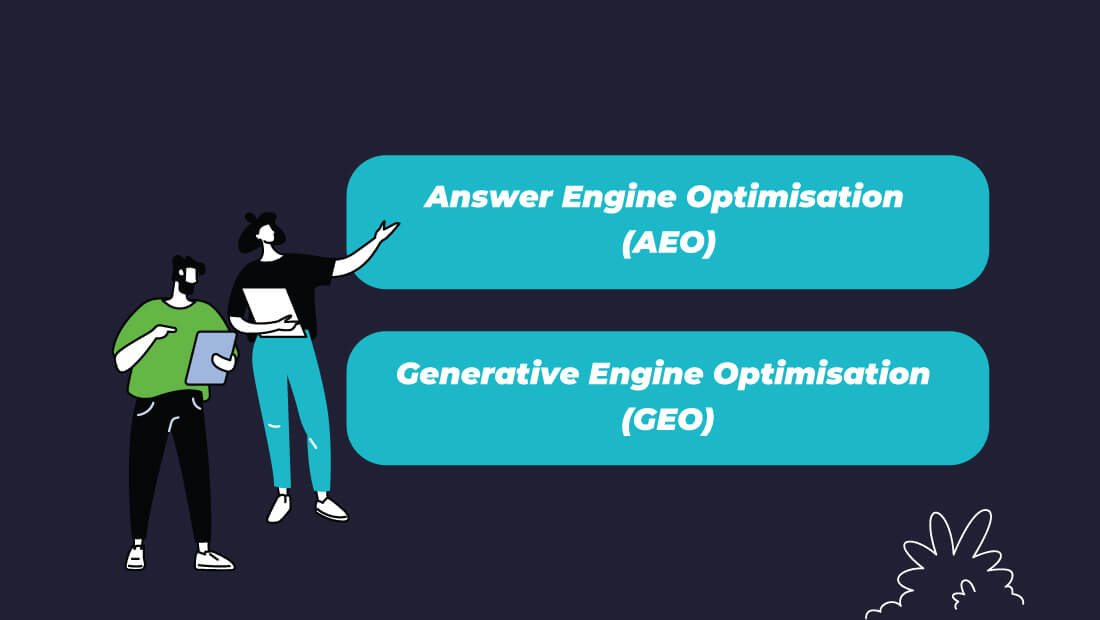30/07/2025
Matt Tomkin
AI and Search Engines: Do You Still Need SEO?

Artificial intelligence (AI) is powering search, but what does that mean for SEO?
Many commentators have already prophesied the death of SEO and the coming of ChatGPT, and the Google Search Generative Experience (SGE) lends weight to that. One study already found that just 8% of people click on traditional search links when an AI overview is present, throwing marketers into a panic.
But all is not as it seems. SEO remains the foundation of any online marketing strategy, but it has changed, meaning you’ll need to tailor your tactics accordingly.
The rise of AI search engines
Generative AI has invaded every facet of society, and search is no exception. The rise of ChatGPT, Bing Copilot and Google’s SGE, or zero-click search functionality, means that businesses face enormous challenges. It’s already impacting SEO return, with 60% of searches now resulting in zero clicks through traditional search links.
It makes sense from a user perspective. Rather than clicking through to websites to search for an answer to a query, they can read an AI overview of an active link instead. Often, this is sufficient to provide them with the answers they want. The problem is that it reduces the opportunities for businesses to sell their products and services.
Another change caused by the rise of AI search engines is that user expectations have also changed. Users are happy with the simple summaries they receive from AI. For companies, SEO is no longer simply about being first on a random list of links. It’s now also about being authoritative enough so your website is the source for the AI response.
How AI impacts online search presence for businesses
The main trend that AI has brought to search from a business perspective is fewer clicks and less traffic. It’s a fact that fewer users are clicking on Google SERP links than before. As early as 2024, Gartner already predicted that search volumes would decline by 25% by the year 2026, and this prediction appears to be true.
UK publishers have already reported declining KPIs. In a survey of both news and non-news platforms, click-through rate (CTR) from search declined by between 10% and 25% year-on-year, even when rankings remained stable.
With that in mind, we can see that:
All of this means that the goal for businesses isn’t simply hitting the number one spot via traditional keyword-driven search, but becoming the cited source for AI overviews.
Will SEO services affect how businesses show in search results?
AI-driven search has already transformed how businesses show in Google SERPs. Instead of a long list of links where users click on the top results, the AI overview now often dominates the screen. Cited sources for these overviews now appear in a small window at the side. In some cases, sponsored links from paid search may continue appearing above the AI overview.
The biggest impact is that paid search will become even more critical in an attempt to beat the AI overview. Another issue is that there are now fewer visible spots to appear organically.
Answer Engine Optimisation (AEO) and Generative Engine Optimisation (GEO)
At the heart of AI-driven search are AEO and GEO. Here’s what they mean in practical terms:
What all this means is that content that’s been readied for the AI areas must be sufficiently detailed, backed by sources, and go beyond the basics. Do it consistently enough, and your firm will start appearing as a cited source.
However, it's important to note that whilst new terms like AEO and GEO have meaning behind them, at the very core, they are simply branches of SEO. Invest in solid, quality SEO services (don't buy into 'new' created services) and you'll see progress.

Why SEO is the crucial service to show in AI search results
Looking through the new reality of search might make you wonder whether it’s time to abandon traditional SEO entirely in the face of SGE. The answer is an unequivocal “no” because the core of the strategies that have worked before still work in the SGE era. If you’re capable of creating detailed content that matches user intent while focusing on the user experience as a priority, you’ll continue to succeed here.
Moreover, traditional strategies still have their place in AI search results. These include:
· Keyword optimisation
· Strategic backlinking
· Value-driven content
The issue isn’t that SEO is dead or dying. It’s that it’s changed as companies and users adapt to the AI era.
How to adapt to the AI search era
There’s no doubt that businesses must adapt to AI search. Replicating the strategies that worked before will only see you investing more to get less. Generally, we can boil down adapting to the AI search era into several key principles:
· Understanding the New Landscape – SEO is no longer only about keywords and rankings in 2025. It’s about intent, context and credibility. AI isn’t just about what you say, but how you’re meeting the needs of the user.
· Quality and Context – Content quality and context are the order of the day. AI is concerned about how you’re answering user questions, rather than loading blogs up with keywords.
· E-E-A-T – The Experience, Expertise, Authoritativeness, and Trustworthiness (E-E-A-T) model has been pushed by Google for years. Now, AI has increased its importance by making it easier to reward sites that actually meet these four key points.
· Technical SEO Matters – Technical SEO still matters as much as it did before. The AI model has altered how content is consumed, but technical elements like mobile usability, site speed and crawlability are just as relevant as before.
· Zero-Click Search – More searches than ever don’t result in clicks. That means companies need to reconsider how they evaluate success, such as assessing visibility and brand mentions within AI mentions. In other words, the nature of how we measure digital marketing success has changed.
At Tao Digital Marketing, we know that negotiating the single biggest overhaul in search in over a decade is challenging. Let our cutting-edge SEO consultants share the load. We’ve supported countless businesses in generating the visibility and new business they deserve, and we can do the same for you. To learn more about SEO services in the AI era, reach out to us today.